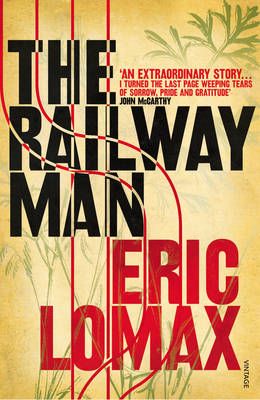The Railway Man was one of the first projects Colin Firth signed on to after he won the Best Actor Oscar for The King's Speech. Earlier today we received the first synopsis for The Railway Man, based on the memoir of World War II POW Eric Lomax:
"What if all your life, all you had ever wanted was a chance at revenge? If the moment came – would you take it? What if love gave you a different choice?"
The key part for this casting notice is the phrase "all your life." Firth is a great actor, with the Oscar to prove it, but the role of Young Colin Firth is beyond even his range. That part will instead go to Jeremy Irvine, the young star poised for a breakout as the lead in Steven Spielberg's Christmas offering War Horse. More after the jump.
Actually, it may be more accurate to describe Firth's role as Old Jeremy Irvine. Both actors are playing the fictional Eric Lomax, and it is not clear in THR's report how the screentime will be split. (Any commenters who have read The Railway Man care to guess?) I can see the resemblance, in part because both men are absurdly attractive. There is clearly something old-fashioned about Irvine. The Railway Man starts in World War II. War Horse is set during World War I. Irvine is also in the adaptation of Great Expectations, which takes place in the 1860s. I really want to see what this kid can do already.
Jonathan Teplitkzky is directing The Railway Man from a script by Frank Cottrell Boyce and Andy Paterson. Here’s the synopsis for Lomax's memoir:
Lomax, a British Army signals officer, was captured by the victorious Japanese during the Singapore campaign in 1942. Fascinated by railroads ever since his childhood in Edinburgh, he took what pleasure he could in the irony of his slave-labor assignment as a POW: the construction of the Burma-Siam Railroad, made famous later in the David Lean film Bridge over the River Kwai. When guards discovered his lovingly detailed map of the right-of-way, Lomax was turned over to the Japanese secret police as a suspected spy. In the subsequent torture sessions, the interpreter, a young man named Nagase Takeshi, played a prominent role in the effort to break him down. Half a century later, by what he calls “an incredible and precious coincidence,†Lomax learned that Takeshi was still living. A meeting of reconciliation at the Kwai River, which Lomax at first suspected was a fraudulent publicity stunt, was arranged. His graceful and restrained account of how the two men eventually became “blood-brothers†after Lomax granted Takeshi full forgiveness is deeply moving. [Amazon]


